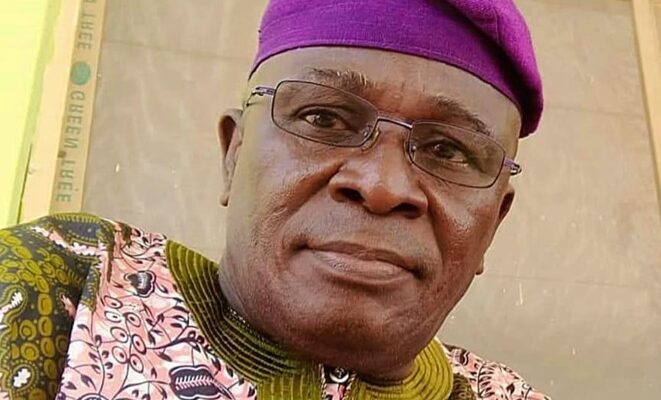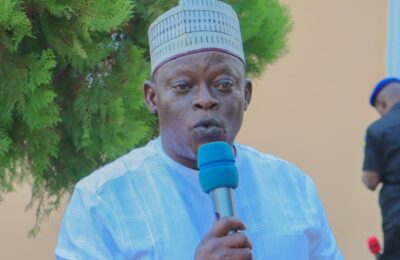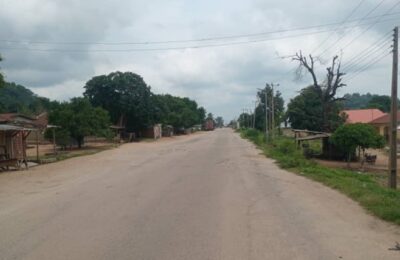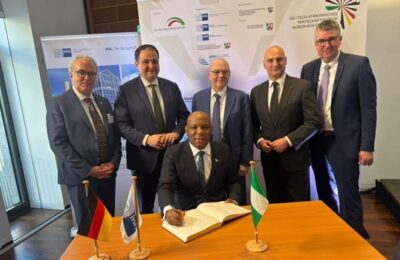By Musa Bakare.
In a political landscape characterized by noise, bitterness, and recycled anger, President Bola Ahmed Tinubu, GCFR, emerges as a figure of strategic mastery and intelligence. His political engineering continues to overshadow adversaries and foster a renewed national consciousness.
The plight of Nigeria’s opposition is straightforward, they raise their voices in protest because they lack structure, they discredit others without offering a clear roadmap, they rely on social media fleeting popularity due to an absence of grassroots support, and they attack President Tinubu, unable to match his political acumen.
While opposition candidates engage in trending debates, President Tinubu focuses on building alliances, stabilizing governance, and redefining Nigeria’s future, the effectiveness of which speaks volumes. The opposition, time and again, falls into Tinubu’s strategic traps.
Since he assumed office, Nigeria has witnessed the most significant political attrition among opposition parties since 1999. Governors have discreetly aligned with the APC even after opposing him, with over 30 opposition lawmakers migrating to the APC in search of stability and relevance. Influential figures from the PDP, once fierce adversaries, are now visiting the Villa, and former presidential campaign leaders are publicly lauding Tinubu’s transformative reforms.
Opposition figures now confront an undeniable reality: President Tinubu’s political framework is more profound, robust, astute, and sustainable than the emotional rhetoric and scaremongering they employ.
While some opposition candidates spent their time entertaining social media audiences, Asiwaju Tinubu meticulously analyzed booth-by-booth electoral strategies. They proclaimed the loss of Lagos, yet Asiwaju constructed a formidable national strategy that secured the presidency; they disparaged his age, while their younger candidates failed to forge the necessary cross-regional alliances; they boasted of youth popularity, yet Tinubu triumphed in states they never anticipated: Borno, Jigawa, Nassarawa, Niger, Ekiti, Ogun, Kogi, and portions of the North-West and North-East.
While Asiwaju Tinubu engaged in genuine political strategy, they opted for comedic distractions, only to be reminded that politics ultimately prevails over comedy. The opposition now grapples with leadership crises, while the APC under Asiwaju Tinubu continues to strengthen its presence nationwide.
A courageous leader is one who rebuilds a nation in turmoil; a weak leader merely seeks to buy time. Strong leaders fear stagnation, while weak leaders dread backlash.
The dismantling of corrupt subsidy systems, a challenge abandoned by five previous presidents, unified exchange rates, and ambitious tax reforms aimed at fostering a self sufficient economy are tangible evidence of President Tinubu’s decisive leadership.
His administration has shown a commitment to recalling reckless officials, thereby affirming that governance is not merely business as usual. Infrastructure projects such as the Lagos-Calabar coastal road, Abuja-Kano road expansion, extensive rail ventures, and immediate steps toward student loan initiatives directly benefitting millions of youths demonstrate a proactive and visionary approach.
These initiatives are not the easy responses of a politician courting popularity; they are the actions of a statesman laying the groundwork for Nigeria’s revitalization.
While President Tinubu strives to solidify the economy, the opposition focuses on sowing discord within the public psyche. As he generates unity across regions, the opposition prioritizes division among ethnic groups. His efforts to forge connections in the North, West, East, and South stand in stark contrast to the opposition’s penchant for burning every bridge they encounter; after all, bitterness serves only to destroy, never to construct.
In his quest for long term economic restoration, President Tinubu continues to counteract the opposition’s false promises and baseless propaganda. They thrive on division rather than development, on emotional outbursts rather than talent.
Asiwaju Tinubu’s presidency embodies the idea that genuine leadership does not signify the absence of challenges, but the presence of courage. Nations advance through perseverance, economies flourish through constructive changes, progress is achieved through sacrifice, and hope is rooted in boldness rather than cowardice.
Daily, he reinforces the belief that Nigeria’s greatness demands a leader with resilience, strategic foresight, and an indomitable spirit. President Tinubu is not merely governing Nigeria; he is actively redefining its political landscape. He is not only weathering the storms of leadership; he is converting challenges into opportunities for growth.
Under President Bola Ahmed Tinubu, Nigeria is witnessing an unprecedented era of leadership, characterized by a leader whose intellect serves as an engine, whose strategies outline a clear roadmap, and whose vision presents a generational investment.
– Musa Asiru Bakare, APC Member and Political Analyst, writes from Lokoja, Kogi State.




